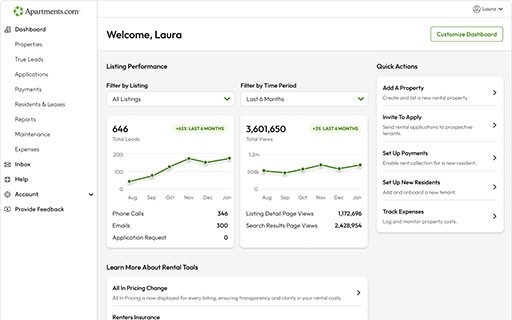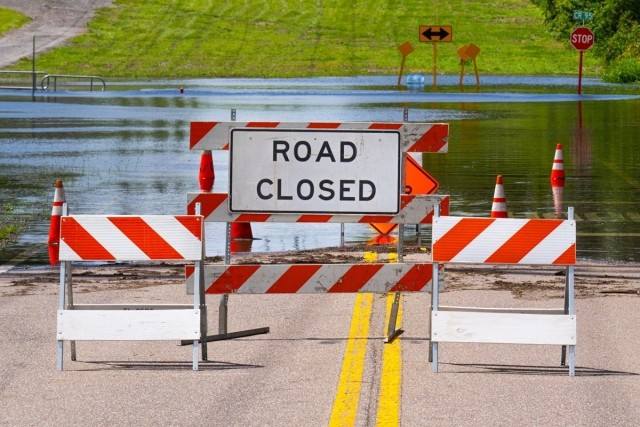
Ensuring your tenant has renters insurance involves more than just stating it as a requirement and asking if they’ve obtained it. You need proof of coverage so you can be confident that your tenant and your property are fully protected. But how do you get that proof? And how do you check that your tenant has kept up their coverage?
To help you verify and track your tenant’s renters insurance, we’ll cover key subjects, such as:
- Why verifying renters insurance matters
- How to verify renters insurance
- Tracking renters insurance compliance
- What to do if your tenant’s renters insurance lapses
Why Verifying Renters Insurance Matters
Verifying your tenant’s renters insurance ensures that both of you are covered against unexpected incidents. While you can take your tenant’s word for it, accepting it without proof is too risky. You put yourself at risk of legal claims, burdensome costs, increased responsibility, and more. Minimize your liability and safeguard yourself and your property by confirming that your tenant has renters insurance.
How to Verify Renters Insurance
Renters insurance is extremely important as it can be the difference between a manageable inconvenience and a costly disaster. That’s why asking for proof, instead of just a verbal confirmation, is a key step in protecting your investment.
What is proof of renters insurance?
There are many ways that tenants can show proof of renters insurance. Be flexible and accept various methods, as insurance companies have different ways of providing proof. Some common ways are:
- Renters insurance declarations page
- Entire renters insurance policy document
- Contact from insurance agent
- The policy number and insurance company
When and how to ask for proof of renters insurance
You should ask for proof of renters insurance multiple times to verify that coverage is obtained and maintained. The first time you ask for it should be during the lease signing.
This is when you should explain the renters insurance requirement, any details, and expectations. You also need to give them the deadline for providing proof (ideally before their move-in date) and how they should submit it to you, digitally or physically.
For physical copies, you could ask for it to be hand-delivered or sent by certified mail. In the case of a digital form, ask for it to be sent as a file in an email. Allowing both digital and physical submissions is good for flexibility, but digital submissions guarantee that you always have a copy. Physical ones could get lost or damaged.
Tracking Renters Insurance Compliance
Checking that your tenant has renters insurance at all times ensures that you both enjoy the protections that come with it. In the worst-case scenario, the tenant gets renters insurance, shows you proof, then cancels it. But don’t worry. There are easy ways to track that your tenant is covered.
Being listed as an additional interest on the policy
By having your tenant list you as an additional interest (also called an interested party), you will get notifications if the policy changes, is cancelled, or lapses for some reason, such as non-payment. Some insurance companies don’t allow landlords to be listed as an additional interest, so check that it is allowed.
This is one of the easiest ways to make sure your tenant maintains renters insurance. You don’t have to continuously check because you will be notified if anything changes. However, it’s still a good idea to ask for proof of renters insurance every year or on renewal.
Annual renters insurance verification or on renewal
Ask for proof of renters insurance again when your tenant renews their lease to verify they still have renters insurance. If they have a longer lease, then you should do an annual verification to confirm compliance.
Note: Outline the renters insurance requirement, process, and any details in the lease so expectations and consequences are clear.
What to Do If Your Tenant’s Renters Insurance Lapses
To protect you and your property, it’s essential to clearly define in the lease what happens if the tenant fails to maintain renters insurance. By outlining the steps and consequences in advance, you establish a clear, enforceable process and minimize disputes. Here's how to respond if a tenant’s coverage lapses.
Notify the tenant of the violation
Begin by sending a formal notice or lease violation letter informing the tenant of the insurance lapse. Include a deadline for resolving the issue, how they can provide proof of renewed coverage, and what actions you’ll take if they don’t comply.
Charge penalties or fees
If your lease includes fees for not maintaining renters insurance, you may charge these penalties in accordance with local laws. Be sure that the amounts and frequency are documented in the lease agreement.
Buy renters insurance and bill the tenant
As an alternative to eviction, you may choose to purchase a renters insurance policy on the tenant’s behalf and charge them for the cost. This is only allowed if your lease explicitly grants you this right, and it should outline the type of coverage and billing terms.
Initiate eviction if necessary
If insurance coverage is a lease requirement and the tenant fails to comply, eviction could be a last resort option. To proceed legally, you must follow proper eviction protocols — this includes giving required notices, observing notice periods, and adhering to all applicable regulations.
Encourage Tenants to Get Renters Insurance
Filling vacancies and getting tenants is one of the main responsibilities of being a landlord. It can seem risky to bring up the idea of renters insurance to potential tenants, as you don’t want to scare them off. However, renters insurance is vital to protecting yourself, your property, and your tenant.
There are ways you can encourage renters to get insurance without jeopardizing the lease. Make renters insurance a requirement in the lease and frame it as a protective measure, not a burden. Educate potential tenants on how it will help them and the benefits they will experience so they know why it is so important. Take these steps to have your tenants get renters insurance so you know you both are covered in case anything happens.
FAQ
Are landlords allowed to require renters insurance?
Yes, landlords can require renters insurance. Just be sure to state it in the lease. You can ask for proof of renters insurance before move-in, at renewal, and annually to make sure you tenant is staying compliant. Before you do anything, check state and local laws, as some places have certain stipulations you must follow.
Does renters insurance cover property damage?
Renters insurance may cover property damage depending on the cause and what was damaged. For example, if the tenant left the sink running and it flooded the apartment, damaging a neighbor’s unit and their belongings. That would be covered by the personal liability portion of the tenant’s renters insurance. Or if the tenant’s own belongings were damaged then that would be covered under personal property coverage.
How much renters insurance should a landlord require?
How much coverage a landlord requires differs depending on their situation, but the amount is usually $100,000 to $300,000 in liability coverage. The coverage amount is affected by factors including:
- Property type
- Geographic risk
- Amenities/high-value fixtures











